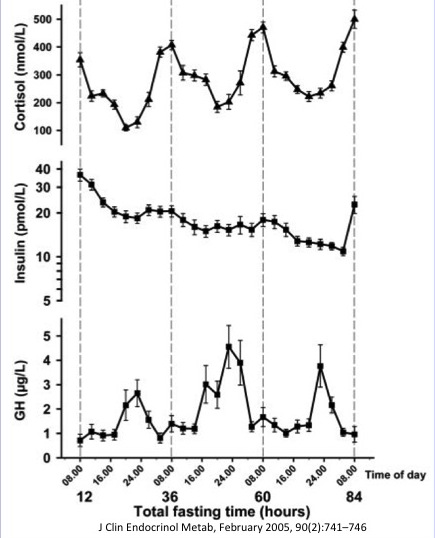and @OldDoug Some of us have speculated that being fat adapted allows us to bypass the need to get into ketosis and thus may enter autophagy sooner than sugar burners. I havn’t found a lab to test for autophages yet near me but I am very interested in this.
Seems to me that just getting into ketosis is not enough. Early in this WOE having HIGH BHB did not equate to high levels of lipolysis. My body made ketones but it had a difficult time using them efficiently. being adapted to using them efficiently I think we have greater access to lipolysis and the other health benefits.
I also speculate that repeated extended fasts may also train the body into the recognition that a refeed will be along shortly and that there is no reason to downshift metabolism. This is based on my experience with each successive fast I seem to get far better results other than survival mode.


 I did not know that ketosis had anything specifically to do with autophagy, other than presumably occurring at the same time if one is burning fat. In reading about it, you are definitely right - ketones do stimulate at least one type of autophagy - called “chaperone-mediated autophagy.”
I did not know that ketosis had anything specifically to do with autophagy, other than presumably occurring at the same time if one is burning fat. In reading about it, you are definitely right - ketones do stimulate at least one type of autophagy - called “chaperone-mediated autophagy.” . Best of my current knowledge there are three distinct types of autophagy. I also am very interested in apoptosis but have not really did a literature review of this and fasting.
. Best of my current knowledge there are three distinct types of autophagy. I also am very interested in apoptosis but have not really did a literature review of this and fasting.

